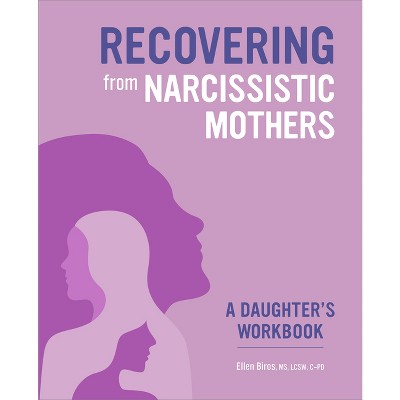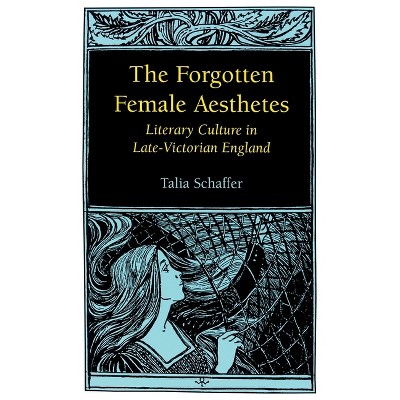About this item
Highlights
- Motherhood inherently involves labor.
- About the Author: Ellen Malenas Ledoux is Associate Professor of English and Communication at Rutgers University-Camden and the author of Social Reform in Gothic Writing: Fantastic Forms of Change, 1764-1834.
- 290 Pages
- Literary Criticism, European
Description
About the Book
Tracing ideas about what constitutes "good" and "bad" mothers back to the eighteenth century, Laboring Mothers demonstrates that how we view a mother's work outside the home depends on the relative privilege of the woman.Book Synopsis
Motherhood inherently involves labor. The seemingly perennial notion that paid work outside the home and motherhood are incompatible, however, grows out of specific cultural conditions established in Britain and her colonies during the long eighteenth century. With Laboring Mothers, Ellen Malenas Ledoux synthesizes and expands on two feminist dialogues to deliver an innovative transatlantic cultural history of working motherhood. Addressing both actual historical women and fabricated representations of a type, Ledoux demonstrates how contingent ideas about the public sphere and maternity functioned together to create systems of power and privilege among working mothers.
Popular culture has long thrown doubt on the idea that women can be both productive and reproductive at the same time. Although the critical task of raising and providing for a family should, in theory, foster solidarity, this has not historically proven the case. Laboring Mothers demonstrates how contemporary associations surrounding economic status, race, and working motherhood have their roots in an antiquated and rigid system of inequality among women that dates back to the Enlightenment.
Review Quotes
An innovative and important study--in Ledoux's own words, a work of intersectional feminism. It is excellently researched, cleareyed, and clearly written, and deftly traces the social dynamics of laboring women over time.
--European Romantic ReviewImportant reading for anyone interested in the histories of motherhood, gender, the family, the eighteenth century, and social reproduction . . . [and] for all of us as our society faces a so-called care crisis and we consider how to move forward more equitably.--Labor: Studies in Working-Class History of the Americas
In this beautifully written book, Ellen Ledoux reveals the eighteenth-century origins of modern discourses of working motherhood and the structures of inequality that underpin them. In six illuminating chapters on real and fictionalised mothers, Ledoux reveals the uncomfortable truth that the history of working motherhood is a history of power and privilege in which some women found ways to access to the more culturally valued aspects of maternity at the expense of others. After reading the various and usually fraught ways that women - celebrated actresses, military women, enslaved women, sexworkers and midwives - managed their domestic and working lives, you will never see the so-called 'Mommy wars' the same again.
--Jennie Batchelor, University of Kent, author of ?The Lady's Magazine (1770-1832) and the Making of Literary HistoryPoised to make a significant contribution to the scholarship in the field. There is no single book that encompasses what Professor Ledoux does here.
--Marilyn Francus, West Virginia University, author of Monstrous Motherhood: 18th-Century Culture and the Ideology of DomesticityThough "perpetually pregnant, nursing, and caring for children," and in the face of the solidifying "cult of motherhood," some eighteenth-century British mothers nevertheless created space for their own intellectual explorations and even performed waged labor. Laboring Mothers asks how they managed it.
Ellen Malenas Ledoux proves a trustworthy guide to a wide range of evidence -- not only eighteenth-century literary and visual representations of working maternity, but also documented choices made by real-life working mothers. She reviews influential scholarly conversations about Enlightenment maternal ideals, offers a balanced view of the limitations and affordances of the "public sphere" model for understanding working maternity, and points to twenty-first-century "afterlives" of eighteenth-century assumptions about mothers and work.
Every student of eighteenth-century British culture will benefit from reading this book.
--Toni Bowers, University of Pennsylvania, author of The Politics of Motherhood: British Writing and Culture, 1660-1760Here's hoping that Ellen Ledoux will both continue her investigation in the fertile area of the productive and reproductive female and inspire other researchers to do the same! It's a rich topic!--The Eighteenth-Century Intelligencer
This well-written text is solidly researched and provides insight into an often-overlooked aspect of life for women whose marginalization left them few options but to be working mothers.--The American Historical Review
About the Author
Ellen Malenas Ledoux is Associate Professor of English and Communication at Rutgers University-Camden and the author of Social Reform in Gothic Writing: Fantastic Forms of Change, 1764-1834.






